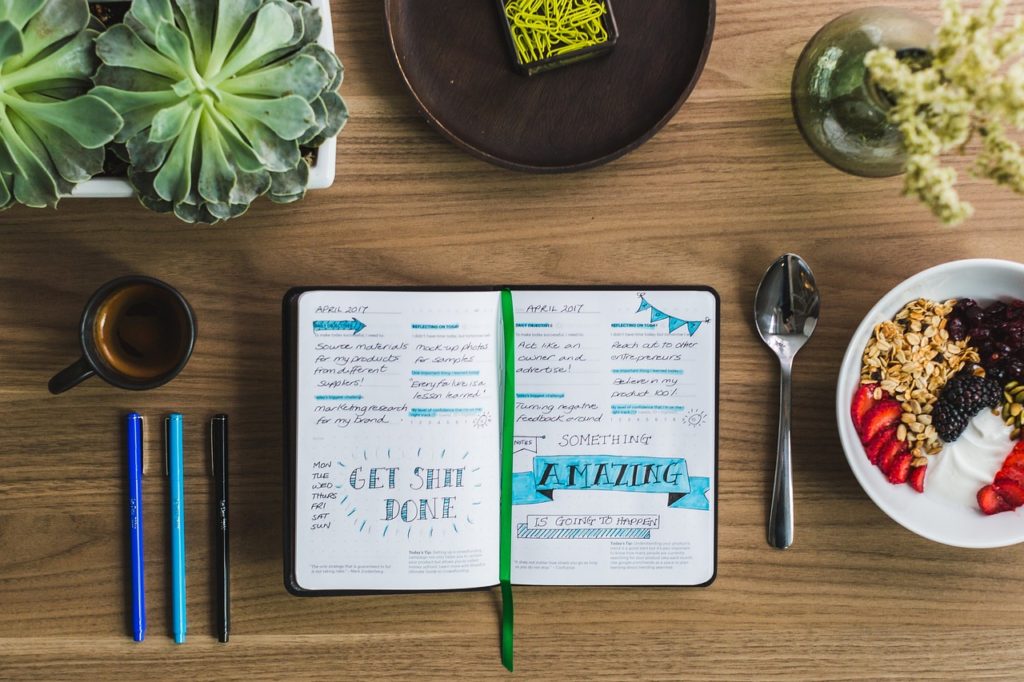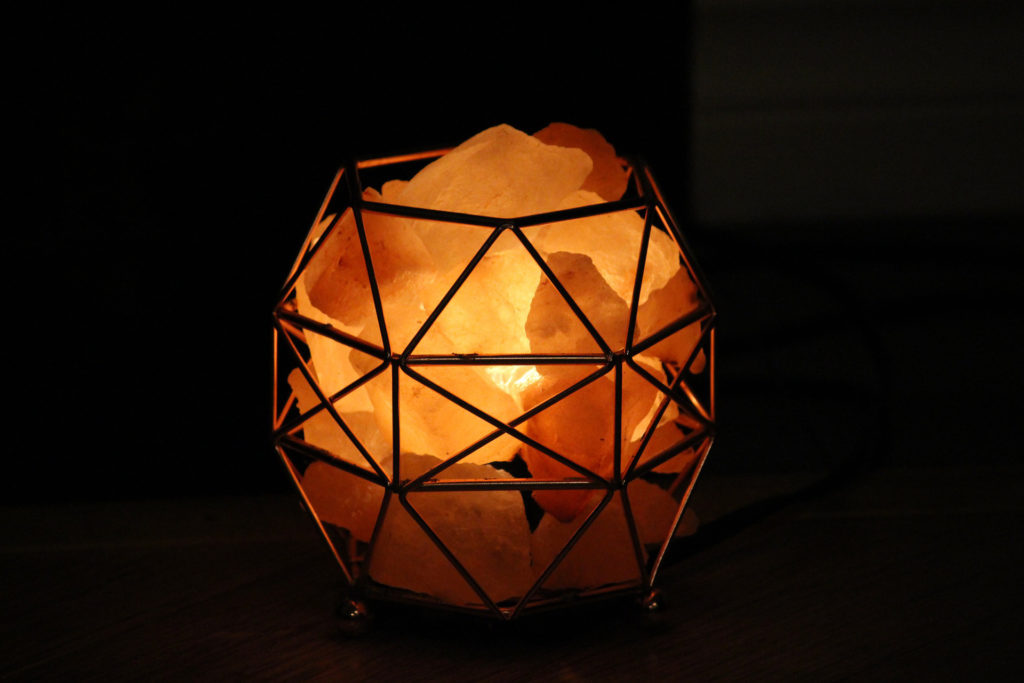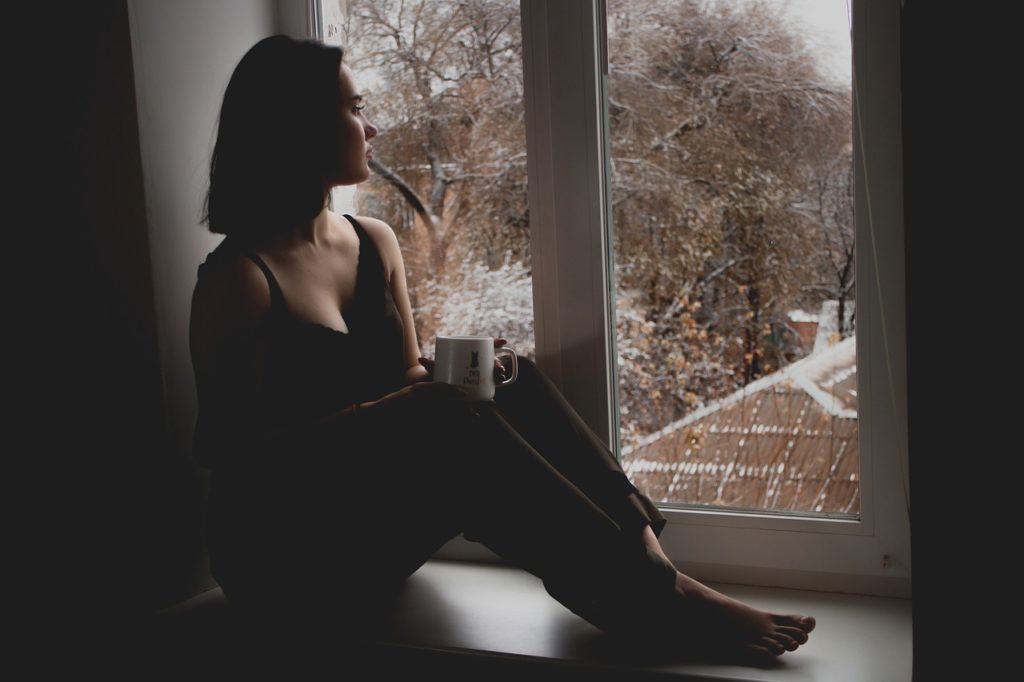Ah, February—It’s cold, it’s gray, and by now, my ability to imagine myself sitting on the beach, soaking up Vitamin D while drinking a marg is, unfortunately, beginning to falter.
So what’s the deal with winter and the mental vise it has on not only me, but roughly 10 million other Americans? Seasonal Affective Disorder, otherwise known as Seasonal Depression.
To be honest, I debated whether or not to write about this topic. Though I’m a huge advocate for eliminating the stigma around mental health, I still find it difficult to share topics that hit a little too close to home. This yearly bout of depression always fills me with a sense of shame and guilt— surely I’m not the only one plagued by these feelings, right?
This year in particular, I really began focusing my energy on what I could do to alleviate some of my symptoms. If I’m being real, some things that I’ve tried have helped, some haven’t, and some things I haven’t yet given a shot.
There are a million different suggestions out there, but I’m going to share 6 things with you that I think might be worth a shot if you find yourself dealing with a yearly bout of the winter blues.
1. Exercise

If you’re one of those blessed people who enjoy working out, then just keep scrolling. There’s nothing for you here.
If you’re like me, the mere thought of exercise makes you want to curl up into the fetal position and take a nap. The great thing is, to reap the benefits, you don’t have to renew your gym membership or feel like you’re training for the next Ironman. Simply adding more movement into your daily routine is likely to help.
Some types of exercises that have been known to ease the symptoms of seasonal depression are yoga, tai chi, balance routines, walking in nature, and meditation. And, hey, I’m no expert, but I’d say playing some Beat Saber or perfecting a trendy TikTok dance counts too.
If I still haven’t convinced you (or myself) to take this route, don’t fret. There are 5 more options coming up.
2. Journaling

Okay, hear me out—I know that being told to journal can get really old. At one point, I literally wanted to karate chop anyone who told me to journal. What I recently figured out, however, was that journaling is a super broad term. There are an infinite number of ways to journal—the key is to figure out what works for YOU.
I recently stumbled across a planner/journal hybrid that has held my interest for more than a week—this is saying something considering my list of failed journal attempts is longer than a CVS receipt. If you’re into what the kids call “witchy shit,” (though I feel like this has something to offer everyone), I highly recommend checking out A Mystic’s Guide to 2022.
3. Light Therapy

I haven’t personally tried this one—unless you count the years I spent frequenting my local tanning salon. Orange was NOT my color. One of the main contributing factors of seasonal depression is shorter days, thus experiencing less daylight during the winter months.
So if you think about it, light therapy makes sense, right? In order to parry the lack of sunlight, UV lamps or boxes are used, giving you a similar effect to being outside on a nice, sunny day. These lights help your brain produce serotonin and melatonin, which can help ease some of the symptoms of seasonal depression.
There are, however, some reasons why light therapy might not be the best fit for you, so just make sure to do your own research and talk to your doctor before trying it out. If you’re interested, you can always purchase your own light therapy lamp online—unsurprisingly, amazon seems to have quite the selection.
4. Salt Therapy (Halotherapy)

If you haven’t been to a salt room, you’re missing out. What’s not to love about listening to relaxing music while laying in a zero gravity chair in a warm, temperature controlled room? Sounds like (and sure felt like) paradise to me! So the only thing about this experience that may raise some eyebrows is the fact that you’re being blasted with salt while you lounge. You likely won’t even notice this happening.
The concept of salt therapy goes a little something like this: While lounging in your comfy chair, you breathe in all of the teeny, tiny salt molecules floating through the air. When those guys enter your lungs, they’re converted into negative ions (good guys), which then attach to and kick out the positive ions (bad guys). The end result leaves you feeling refreshed, clear-headed, and, well, happy.
The great thing is that the benefits of salt therapy don’t stop at mental well-being. It can also work wonders on your respiratory system and soothe and heal your skin as well.
5. Talk Therapy

Therapy is great, but I considered not including it because, well, it’s obvious. Then I remembered that asking for professional help can be incredibly difficult for some people. If you want to get personal, I was once some people.
It can be really hard to admit that you can’t “fix” yourself, and it can be terrifying to let a complete stranger see the parts of you that you’d much rather keep hidden.
If you’ve tossed around the idea of reaching out to a therapist, counselor, or psychologist, Iet this be your sign to schedule that dang appointment. The benefits far outweigh the discomfort—scout’s honor.
6. Medication

Medication—such a controversial topic, and rightfully so, what with all the different side-effects and all. Yikes. Sometimes though, using medication to get through the long, dark winters can be helpful. The upside is that for seasonal depression, you may only need to take medication during the months that you’re experiencing symptoms. Not all year.
If you’re considering this route, I recommend that you do your own research before sitting down with your doctor or psychiatrist. In my humble opinion, it helps to make note of any concerns or pre-existing conditions you might have, such as anxiety, insomnia, increased or decreased appetite, etc.
Also, it wouldn’t hurt to know where your boundaries lie with meds, such as refraining from anything that can be habit forming or certain side-effects that are a deal breaker. Speaking for myself here, but if I have a say in what’s happening to me or going into my body, I’m more likely to be open-minded and less likely to have a ‘tude about it.
So in a nutshell…
There are numerous tips, tricks, and techniques out there that can help you cope with seasonal depression—these are just 6. Some of these may work for you, and some may do squat. And that’s okay. Whatever path you decide to take, I hope that this post gave you some ideas, or at the very least, pointed you in the direction of something that will work for you. If you found this information helpful, drop a comment below! I’d love to hear your thoughts.

